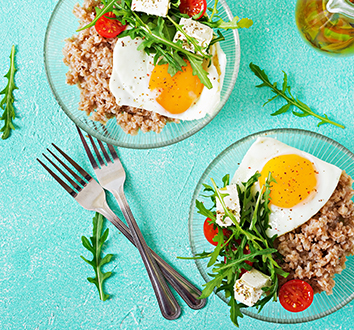 206
206 Proteins are macronutrients essential for the growth and maintenance of individual cell structure and its function, also regulating hormonal activity in human body. They account nearly 6th percent total body weight in live human being.
They are large organic molecules. It majorly comprises of long chain units ‘Amino acids ‘. Upon break down, it forms carbon, hydrogen, oxygen and nitrogen.
LWhat makes them different from carbohydrates and fats is they produce, nitrogen (16%) (which carbohydrates and fats don’t) responsible for eliminating nitrogenous waste through kidneys.
One gram of proteins yields around 4 kcals just like carbohydrates, but does not perform primary function of energy giving, as body preserves it for growth and repair of cells and for the time when recovery becomes essential like in trauma, burns.
Nonnegotiable functions are as follows: -
1. Maintenance and repair of body cells.
2. Body building or developing new tissues.
3. Important component for formation of hemoglobin (Hb)
4. Transport of several nutrients.
5. Precursors of several chemical messengers.
6. Formation of antibodies, thus better immunity.
7. Maintaining ACID-BASE balance in the body.
8. Energy supply (1 g= 4 Kcals)
Rich sources: - They are divided into Plants and animal sources respectively: -
Plant sources: - Nuts, pulses, beans, dal, legumes, leafy vegetables (traces), cereals, peas, soya and its products, nuts and oilseeds.
Animal sources: - Milk and its products like curds, paneer, khoa, kefir, eggs, chicken, fish, meats, seafood, poultry,
Proteins are very important part of human wellbeing and they must be supplied through daily RDA.

 230
230
 165
165
 212
212
 166
166
 134
134